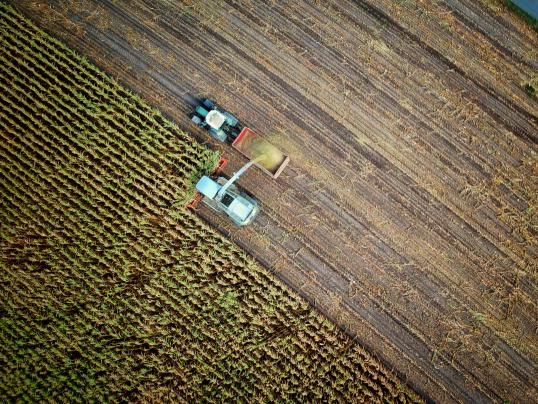The Czech Republic introduced the excise tax refund for diesel fuel used in agriculture in 2000. The subsidy aims to support agricultural production, forestry and fisheries. The refund rate for crop production, forestry and fish farming is 40% and ranges from 40% to 87% for animal production. The subsidy makes the use of diesel in the agricultural sector cheaper. It lowers the production costs permitting a higher volume of production. This leads to increased revenues in the agricultural and energy sectors. Similar subsidies exist in Belgium, Czech Republic, France, Germany, Greece, Hungary, Ireland, Italy, Luxembourg, Latvia, Poland, Portugal, Slovakia, Slovenia, Spain and Sweden.
The foregone government revenue from this subsidy was EUR 114 million in 2020. The excise tax refund for diesel reduces the cost of a litre by 13% for forestry, fishpond cultivation and plant protection and 33% for animal production.
The environmental impacts of this subsidy are increased GHG emissions, air pollution, and land and water use. The abolishment of the subsidy would decrease consumption by 3% to 7%. This would reduce CO2 emissions by 33,919 tonnes in all sectors combined.
The subsidy has undergone several reforms since its introduction, but most were not motivated by environmental objectives. The Czech Republic aims to lower its energy consumption and enhance energy efficiency. The country is still very dependent on fossil fuels, especially coal. Phasing out coal for energy is one of the main elements of the country’s green transition. Currently, agricultural and transport policies and future outlooks do not focus on phasing out fossil fuels used in agriculture. There are several options to reform the subsidy. The mandatory blending of biofuels in the agricultural sector could be introduced as an option. Income support for farmers under EU Common Agricultural Policy (CAP) could also be a viable alternative as a less environmentally harmful support scheme. It could focus on the most affected farmers. Other support schemes fostering energy efficiency investment could also be effective, but they may not work for everybody affected by the reform.
More information on the excise tax refund for diesel fuel used in agriculture and other candidates for reform in the Czech Republic and other Member States can be found in the country case studies and factsheets compilation.

